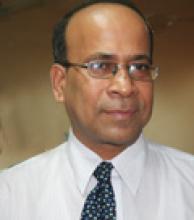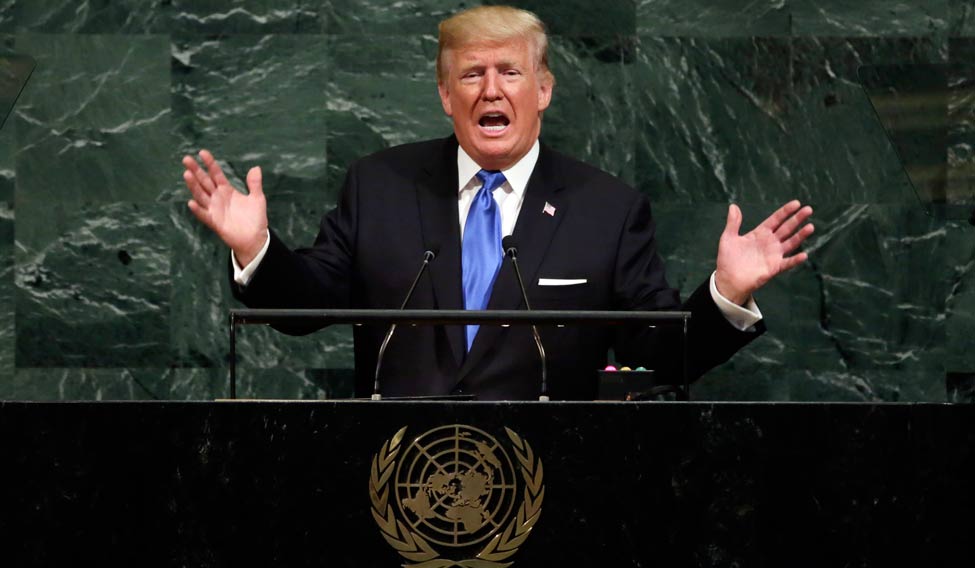US President Donald Trump made his debut at United Nations suggesting Washington's return to multilateralism, but in its own terms exclusively. After Soviet disintegration leading to the end of a bipolar world, the sole super power attempted to establish a unipolar world under the US hegemony.
 Arun Mohanty
Arun Mohanty
Describing Soviet break up as Soviet defeat in the cold war, the US changed the rules of game in the sphere of global governance by trying to establish Pax-Americana. US resorted to unilateral intervention in different regions of the globe bypassing the UN and grossly violating international law. Last decade of 20th century witnessed blatant US unilateralism in every region, be it Europe, Africa, Asia or Middle East. Naked US intervention in Iraq, Somalia, Yugoslavia, Afghanistan and other countries took place bypassing the international organisations, including the UN, and trampling all established international norms. However, after facing disastrous consequences of unilateral US intervention in almost all continents, Washington is now forced to rediscover virtues in the revival of the world body albeit through its radical restructuring and reforming.
Washington convened a summit of nearly 128 countries in New York on September 18, 2017 on the eve of current UNGA where US President Donald Trump made his debut. Trump introduced a 10-point declaration in the summit for reforming and restructuring the UN. (The declaration, while talking about the inefficiency and bureaucratic lethargy of the UN, calls for its drastic reform).
The ideas in the declaration like reduction in mandate duplication, eliminating overlapping in function and expenditure cut look impressive, only at the first glance. However, it is by no means a product of any collective and cooperative effort but an exclusive brain child of Washington. Annoyed by some decisions of the UN and the world body’s affiliate organs on certain issues, the US in the past has even resorted to reducing its financial contribution to the world body. What is more conspicuous is that the declaration is silent about the reform of the UN Security Council, a controversial issue widely debated for last several years.
The US insisted that only those countries which agree with the declaration and are willing to sign it would be invited to the summit. Russia and China—two permanent members of the UNSC—were neither consulted nor were invited to the summit. So, the US proposition clearly smacks of an attempt to return to UN-led multilateralism through unilateralism based on its own terms, and hence the attempt to impose the declaration unilaterally without the consent of two major global players—Russia and China. This would make the implementation of the declaration almost a task next to impossible.
“Moscow won’t sign the declaration on the UN reform, proposed by the US,” said Vasily Nebenzia, Russia’s permanent representative to the UN, stressing that “world body’s reform should be carried out through negotiations between all member countries of the organisation, which clearly has not happened, and not by adopting a declaration drafted by one of the states.”
Trump’s much awaited maiden speech at UNGA is even more precarious and disappointing. The US president, in his bellicose speech, directed much of his fury and fire against the nuclear North Korea and recalcitrant Iran. His threat to “totally destroy” North Korea sounded more like a rant than an enunciation of policy. His indication to walk away from the bilateral nuclear agreement with Iran signed by his predecessor, Barak Obama, based on 6-nations mediation in the backdrop of the US withdrawal from Paris international agreement on climate change is no doubt a sign of US unpredictability and unreliability as a partner in global affairs. Trump's criticism of what he called the “rogue regimes” of Iran, Syria, Venezuela and Cuba and call to UN members to join the US in the fight for peace surprised nobody and suggests that the expected change in US policy under Trump, who had promised drastic change in US policy during presidential campaign, is a far cry.
Arun Mohanty is a professor at Center for Russian and Central Asian Studies, School of International Studies, JNU





